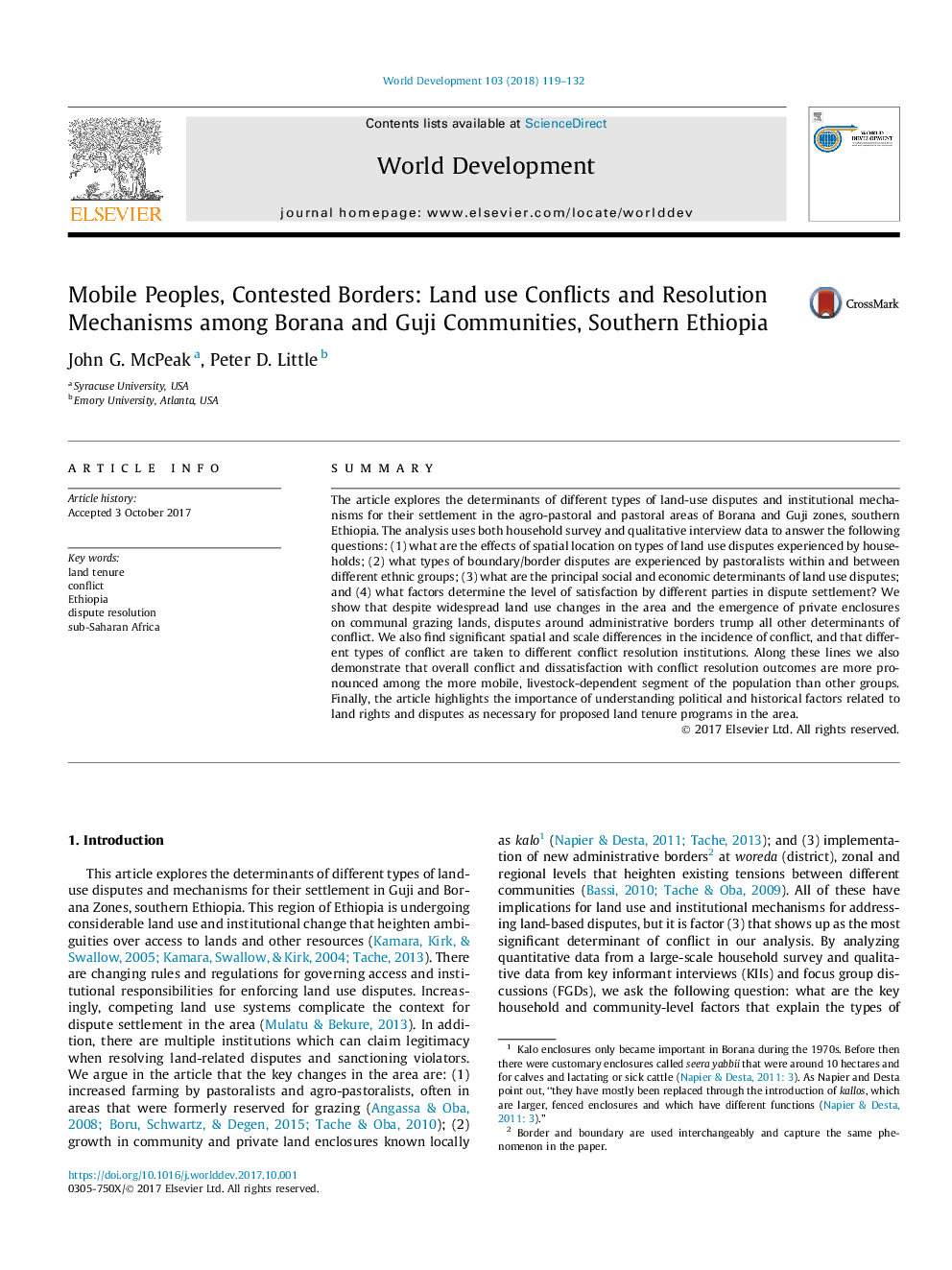ترجمه فارسی عنوان مقاله
ملل متحد، مرزهای مورد توافق: اختلافات و استفاده از اختیارات استفاده از زمین در جوامع بورانا و گجی، اتیوپی جنوبی
عنوان انگلیسی
Mobile Peoples, Contested Borders: Land use Conflicts and Resolution Mechanisms among Borana and Guji Communities, Southern Ethiopia
| کد مقاله | سال انتشار | تعداد صفحات مقاله انگلیسی |
|---|---|---|
| 103280 | 2018 | 14 صفحه PDF |
منبع

Publisher : Elsevier - Science Direct (الزویر - ساینس دایرکت)
Journal : World Development, Volume 103, March 2018, Pages 119-132
ترجمه کلمات کلیدی
مالکیت زمین، تعارض، اتیوپی، حل اختلاف، جنوب صحرای آفریقا،
کلمات کلیدی انگلیسی
land tenure; conflict; Ethiopia; dispute resolution; sub-Saharan Africa;

